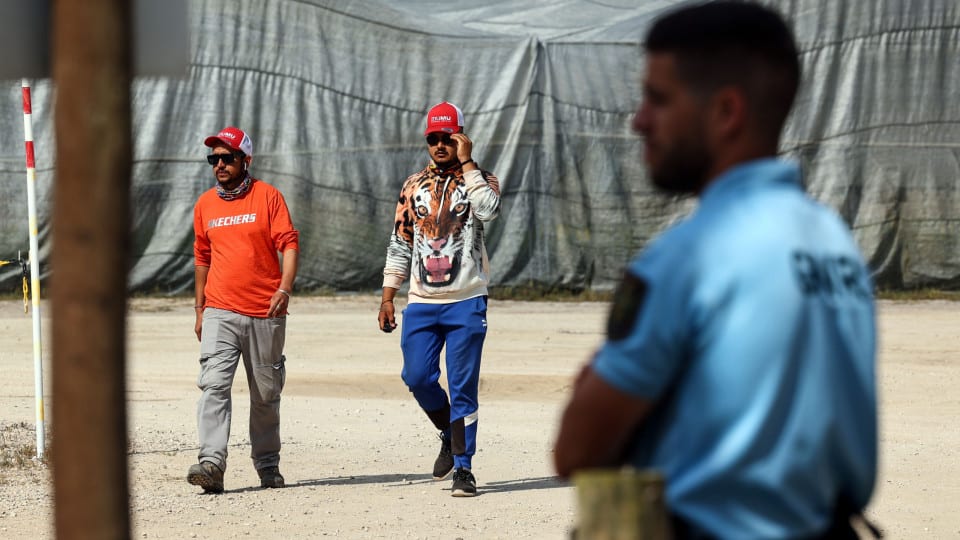At least six defendants in the case of an alleged network that hired immigrants for farming in the Alentejo have appealed against the investigative decision and one has filed a habeas corpus request, the lawyer representing them revealed today.
Lawyer Pedro Pestana, who is defending six of the 47 defendants convicted in this case, told the Lusa news agency today that the appeals against the decision were lodged with the Évora Court of Appeal (TRE).
The request for the immediate release (‘habeas corpus’) of the only one of his six clients in pre-trial detention was submitted to the Supreme Court of Justice (STJ) in Lisbon.
The lawyer considered that “the investigative debate was very turbulent” and that the investigative decision had “insanitary nullities”.
“The judge only had eight days to get to grips with the case, which is a mega-case. Trafficking in human beings is the biggest, with 39 volumes, 122 files, lots of wiretaps and lots of evidence,” she said, stressing that “it wasn’t humanly possible to give an investigative decision within that timeframe”.
The case, he said, “spent a year, three months and 22 days in Lisbon” and was transferred to the Court of Cuba, in the district of Beja, when some of the defendants were eight days away from being remanded in custody.
“Everything was done in a hurry” and, during the pre-trial debate, the lawyer argued, he was cut off from speaking, the prison guards went without lunch and the defenses even sat in the dock in one session because a larger room was unavailable.
As for the insurmountable nullities that he believes exist, Pedro Pestana alluded to the period between the notification and the date set for the investigative debate, stressing that “the time limit laid down in the law” of a minimum of five days was not respected.
During the pre-trial debate, several complaints were made by the lawyers, two of which were his own, he added, explaining that one was due to the judge’s refusal to hear the defense witnesses.
“All the defense witnesses were rejected, as if only the witnesses listed by the prosecution were valid,” he lamented, asking: “Where is the contradiction and the principle of parity of arms between the defense and the prosecution?”
The lawyer criticized the work of the Public Prosecutor’s Office (MP), arguing that, in addition to “describing little or nothing” about the conduct of each of the defendants, it “lumped everything together”, since “everyone was accused of everything”.
“The MP practiced the technique of trawling, by which he had the big fish, the small fish and the non-fish caught,” he lamented.
The six defendants he represents were “accused of 343 crimes, but were only convicted of 29 crimes”.
“They shouldn’t be pronounced, because most of the crimes have fallen and, if I’d had the chance to produce evidence, maybe they’d all have fallen,” he added.
The case involved the prosecution of a total of 51 defendants, but on March 27, the judge ruled that 47 people would stand trial and three were not convicted of any crime.
“While the case was pending, one of the defendants died, so the criminal proceedings against her were declared extinct,” the Cuban court judge responsible for investigating the case told Lusa.
The 47 defendants will be tried for one crime of criminal association, six of them for 20 crimes of human trafficking, four for another eight identical crimes and eight for seven of these crimes.
There are 35 defendants who will face charges of money laundering and, according to the decision, defendants have also been indicted for possession of a prohibited weapon and drug trafficking.
This case dates back to November 23, 2022, when the Judicial Police (PJ) carried out an operation in the district of Beja in which they arrested 35 suspects “strongly indicted” for crimes of criminal association, human trafficking, money laundering and document forgery, among others.









